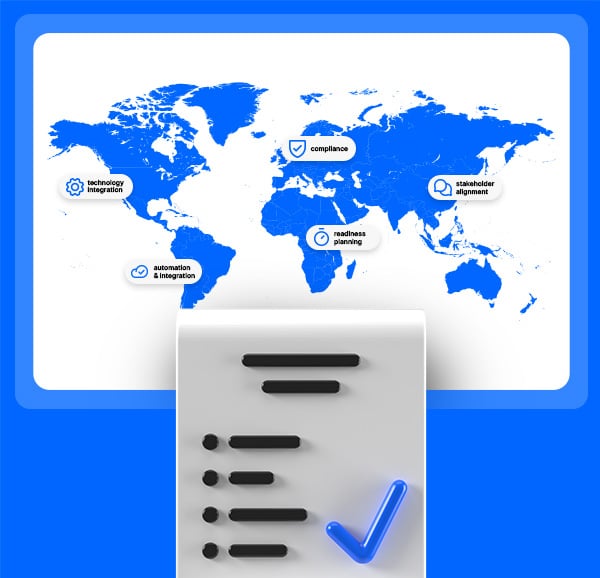
Imagine a hypothetical employee called Jane, who has been living and working for a major business based in the UK since 2017. Jane’s role was always entirely office-based, and any communications with partners and suppliers were done over the phone or through video calls.
Then the pandemic came along and Jane was forced into working from home through lockdown…which then became the rest of 2020 and went on into 2021. Eventually, her employer decided they would adopt flexible working permanently: employees who wanted to come back into the UK office could, while those who preferred remote work could continue to do so for as long as they wanted.
Jane’s partner is Spanish, and so they took the decision to move to Spain, where she continued doing her job from there. To this day, her employer still doesn’t know that she isn’t living and working in the UK any more.
This may have had no effect on her performance or productivity. But did you know that moving to work from another country can have massive implications from a payroll and compliance perspective? This blog explores the issue of ‘stealth expats’ taking ‘hush trips’, and how payroll teams should handle them.
What’s a stealth expat and how to spot them?
Stealth expats are employees or business travellers who stay in and work remotely from another country for an unlawfully long period. Generally, they enter their new country as tourists, without the required visa or permission to work in the country. Just like the four stealth expats Business Insider spoke to, often they don’t tell their employers that their arrangements have changed, meaning payroll, HR and other departments continue to treat them as if they’re still living and working in the original country.
If employees don’t tell their employers where they’re working from, there are potentially other ways to uncover their location. This can include noting their use of overseas phone numbers, new patterns in expense claims and travel bookings, or time zone-related changes for meeting availability. Some employers have also explored tracking mobile phone use, although this must be carried out carefully to comply with data privacy laws.
Why are hush trips such a big problem?
It may seem like stealth expats aren’t really causing any harm, especially if their working performance isn’t affected. But they are putting both themselves and their employers at real risk of non-compliance penalties – and employer ignorance of their employees’ locations is no excuse under the law.
If employees take a ‘hush trip’ by working from a different jurisdiction, there is a huge range of potential differences in their payroll and HR status. All of the following could be affected:
- Income tax and social security
- Medical cover
- Workplace insurance
- Immigration status
- IT product licensing
…to name just a few of the possible difficulties.
Dealing with these issues isn’t necessarily impossible, but can be extremely complicated and expensive, especially if there are large numbers of employees working in different places all over the world.
The penalties for non-compliance can be severe, especially as many countries’ immigration policies have tightened up in recent years. Take one ill-fated Reddit user, who feared financial repercussions for working secretly from abroad, asking:

“Just been caught working abroad without my company’s permission. Am I about to get sued?”
In fact, the potential outcome to this type of scenario could arguably be considered worse. Employers may face financial and legal sanctions, and in the worst-case scenario be suspended from operating in a particular country. Employees, on the other hand, could be fired, fined, deported back to their country of origin, or even face criminal charges in extreme cases.
What should payroll teams do about this issue?
The two most important things around addressing this issue are education and visibility. Many stealth expats have moved abroad simply because they didn’t think there would be a problem, so ensuring they understand the ramifications of stealth-expat-working can help reduce issues in the future. This approach should ideally include:
- Clear policies: transparent, accessible documents that explain how remote working abroad should be applied for and managed – for full visibility and a clear audit trail
- Compliance and risk management support: expert services such as CloudPay’s global compliance solution can help organizations address any legal or regulatory issues that arise, especially thanks to our cross-border legislation knowledge and experience with global payroll issues
- Self-service portal access: enabling employees to update their payroll and HR information independently can reduce the risk of misunderstandings through a lack of information, or honest mistakes being made
Prevention over cure
Ultimately, when it comes to stealth expats, prevention is much easier than cure. Helping remote employees understand why they shouldn’t unilaterally start working elsewhere will cause far fewer headaches than dealing with the legal ramifications later on. But in either situation, having open communication and strong compliance capabilities, backed by expert support and tooling, can help mitigate any impacts that might arise – for employers and employees alike.
Find out more on how CloudPay’s compliance services can help you manage your remote workforce here.


